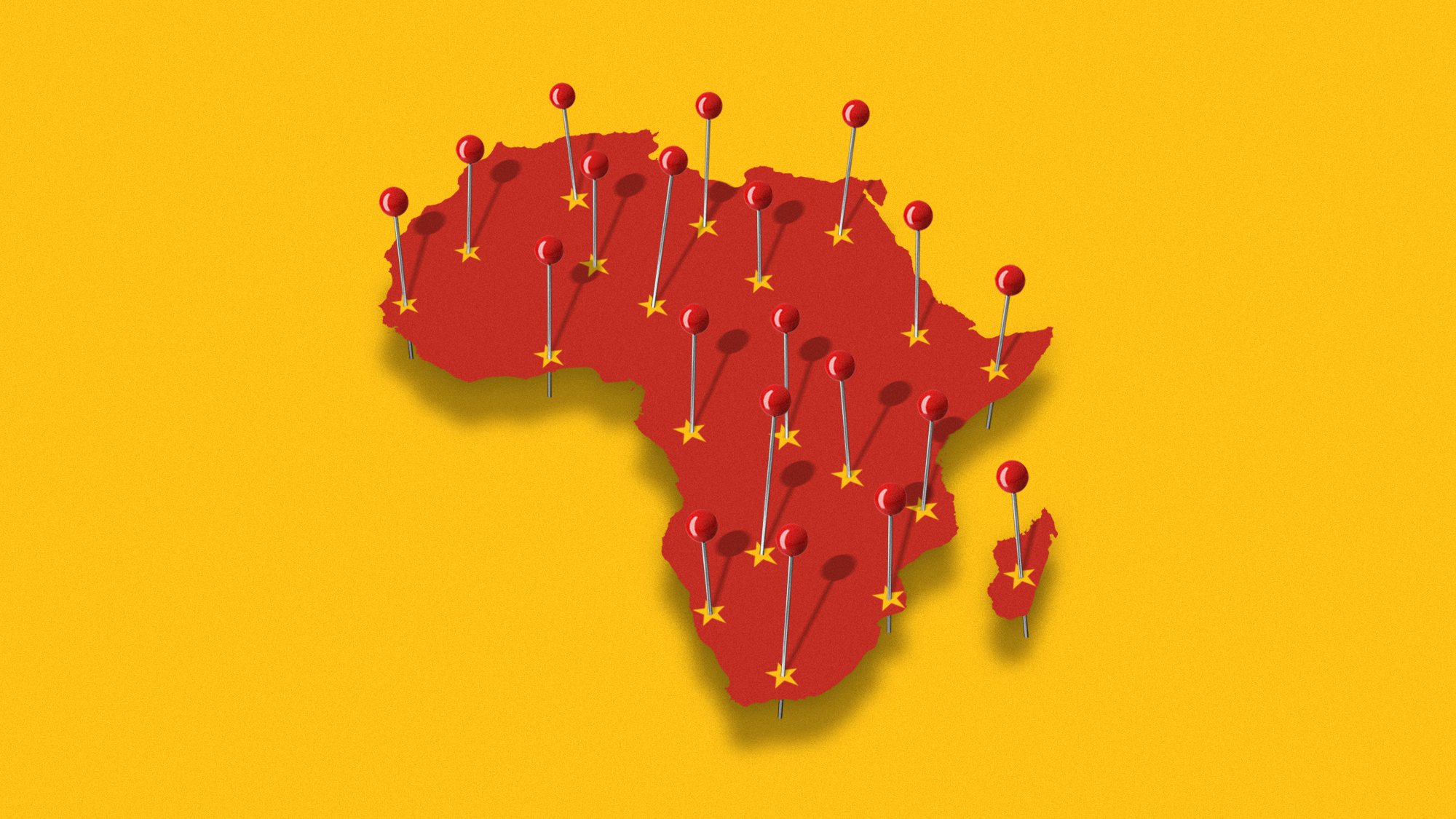China-Africa summit 2024: the tactics on both sides
African nations seek more flexible approach from Beijing to relieve crippling 'debt distress'

A free daily email with the biggest news stories of the day – and the best features from TheWeek.com
You are now subscribed
Your newsletter sign-up was successful
Leaders of African countries will head to China this week for the ninth Forum on China-Africa Cooperation summit, where they'll meet President Xi Jinping to discuss strengthening economic relations.
In the "anticipated high-level meeting" in Beijing, President Xi will hope to continue China's expanding "influence on the continent amid a silent face-off with Western countries", said Al Jazeera.
China hopes its increasing investment in the continent will encourage leaders to "absorb more Chinese goods", said Reuters, but why exactly is the cooperation so important for both sides?
The Week
Escape your echo chamber. Get the facts behind the news, plus analysis from multiple perspectives.

Sign up for The Week's Free Newsletters
From our morning news briefing to a weekly Good News Newsletter, get the best of The Week delivered directly to your inbox.
From our morning news briefing to a weekly Good News Newsletter, get the best of The Week delivered directly to your inbox.
What does each side want?
The appeal to African countries of cooperating with China is access to potential financing solutions that can help ease the crushing economic debts many are experiencing.
Hundreds of millions of Africans live in countries spending "more on interest payments than on health care or education", said The New York Times (NYT). That crippling debt became unmanageable as wealthier countries and private lenders dealt with the shocks of the coronavirus pandemic and Russia-Ukraine war that led to a surge in inflation.
China, however, has remained willing to lend African nations large loans, and in the past 20 years "one in five infrastructure projects in Africa was financed by China", said the NYT. That is why African leaders are so keen to meet and appear amenable to President Xi at the summit, despite some unfulfilled pledges in the past.
For China, currying favour in Africa helps it "in its climb to global superpower status", said Al Jazeera. By exercising influence in developing nations, it is able to counter the reach of the United States and Europe, particularly on a continent that is so rich in the raw materials China uses to produce the products it ships globally (including back to Africa).
A free daily email with the biggest news stories of the day – and the best features from TheWeek.com
Beijing remains "unmatched" in its economic support for Africa by any other country, and hopes that it can use this position to "wield diplomatic influence at the United Nations".
What is China doing in Africa?
China has been involved in significant infrastructure projects, including "railways, airports, harbours, bridges, and information and communication technology infrastructure" across Africa, said Bhaso Ndzendze from the University of Johannesburg at The Conversation.
However, there has been little "technology and skills transfer" to the continent, with much of the expert and technical parts of development coming from China. "The local populations mainly participate in labour work and government relations."
Willingness to provide financing and infrastructure has kept Beijing in a favourable trading position, where it has essentially sold manufactured goods to acquire Africa's raw materials. But there is a sense some of the African leaders could push for a more even trade arrangement that helps boost countries' long-term economic sustainability and move them away from Chinese debt.
Is it working for both sides?
The relationship between China and Africa has been a largely uneven one in favour of the former. The "lack of an African strategy" has left "imbalanced terms of trade", said Ndzendze, with China enjoying a growing trade surplus due to the unchanged terms of the trade arrangement.
But China has also faced criticism for its "free flowing" funding that, despite having provided much-needed construction, has been "saddling countries with unsustainable debt" that has left them under Chinese political influence, said CNN.
Countries including Ghana, Zambia and Ethiopia have suffered particular "debt distress" under Chinese financing, said the BBC. Beijing has offered little relief for countries struggling to repay it, instead simply delaying repayment to maintain its position of power.
The issue of debt sustainability is likely to be a key talking point of the summit. However, there is little expectation of China becoming more flexible in provisioning debt relief for heavily burdened countries. Instead, it is likely to focus on shifting to "small yet beautiful" investments as part of its Belt and Road Initiative, targeting projects with "smaller budgets and environmental or social impact", said CNN.
Despite China's relationship with the continent as a whole coming under the spotlight at the summit, it is often individual countries that negotiate deals with Beijing, weakening their "bargaining power", said Theo Neethling, from the University of the Free State in South Africa, at The Conversation. Taking a stance as a bloc and being able to "unite and adopt a more coordinated approach" would strengthen each nation's position, but a lack of unity will continue to allow China to "dictate the agenda".
Richard Windsor is a freelance writer for The Week Digital. He began his journalism career writing about politics and sport while studying at the University of Southampton. He then worked across various football publications before specialising in cycling for almost nine years, covering major races including the Tour de France and interviewing some of the sport’s top riders. He led Cycling Weekly’s digital platforms as editor for seven of those years, helping to transform the publication into the UK’s largest cycling website. He now works as a freelance writer, editor and consultant.